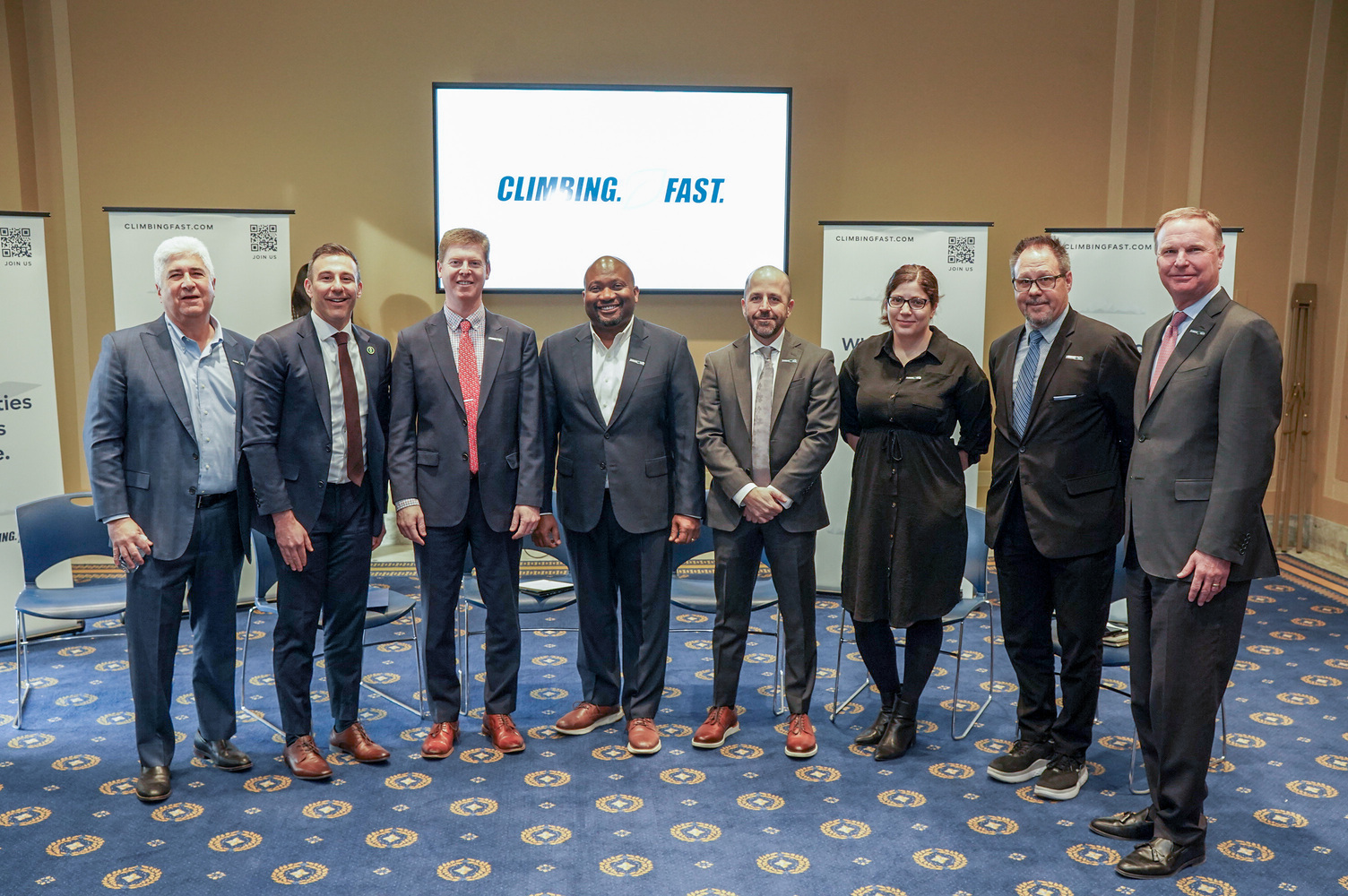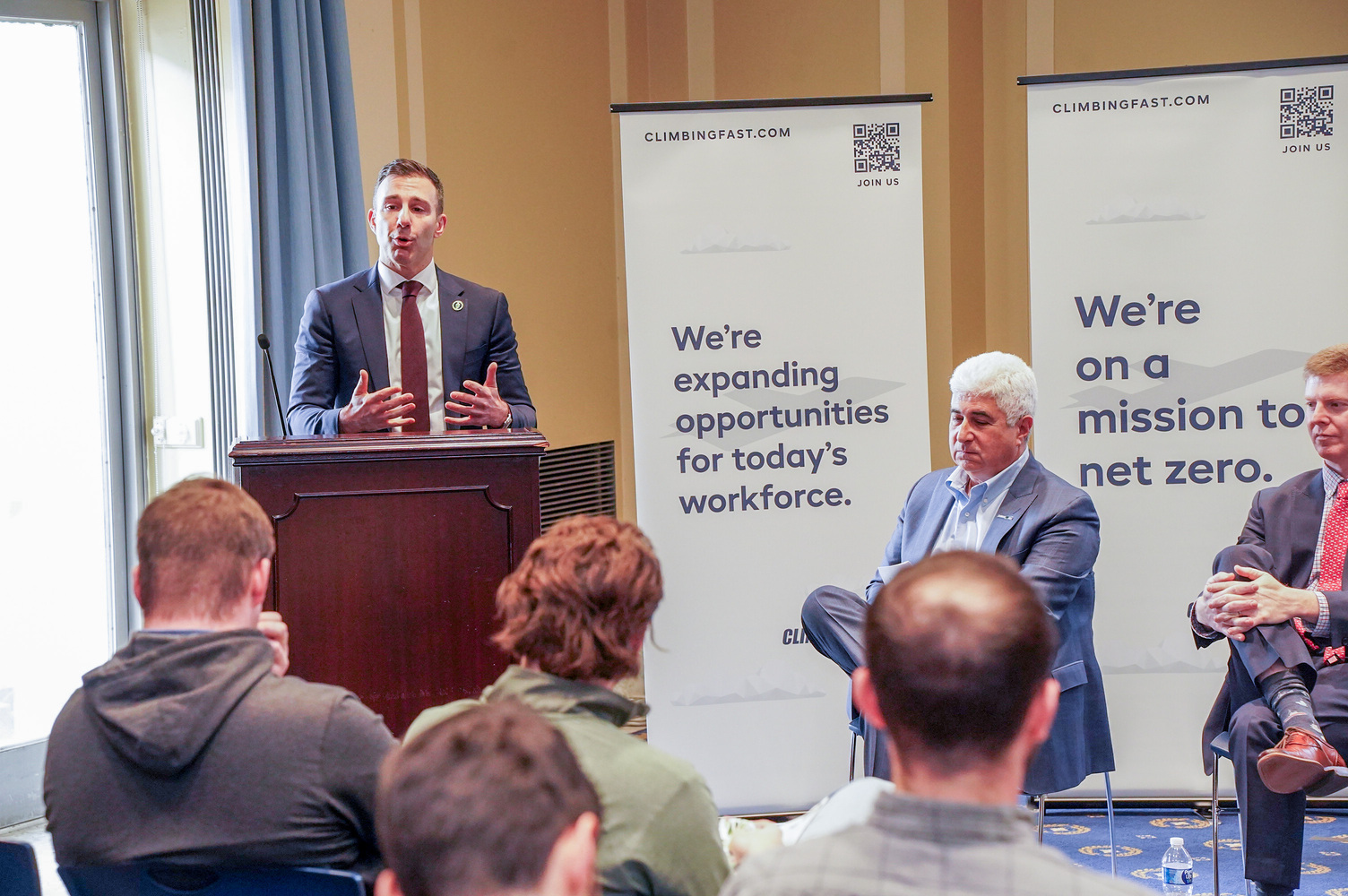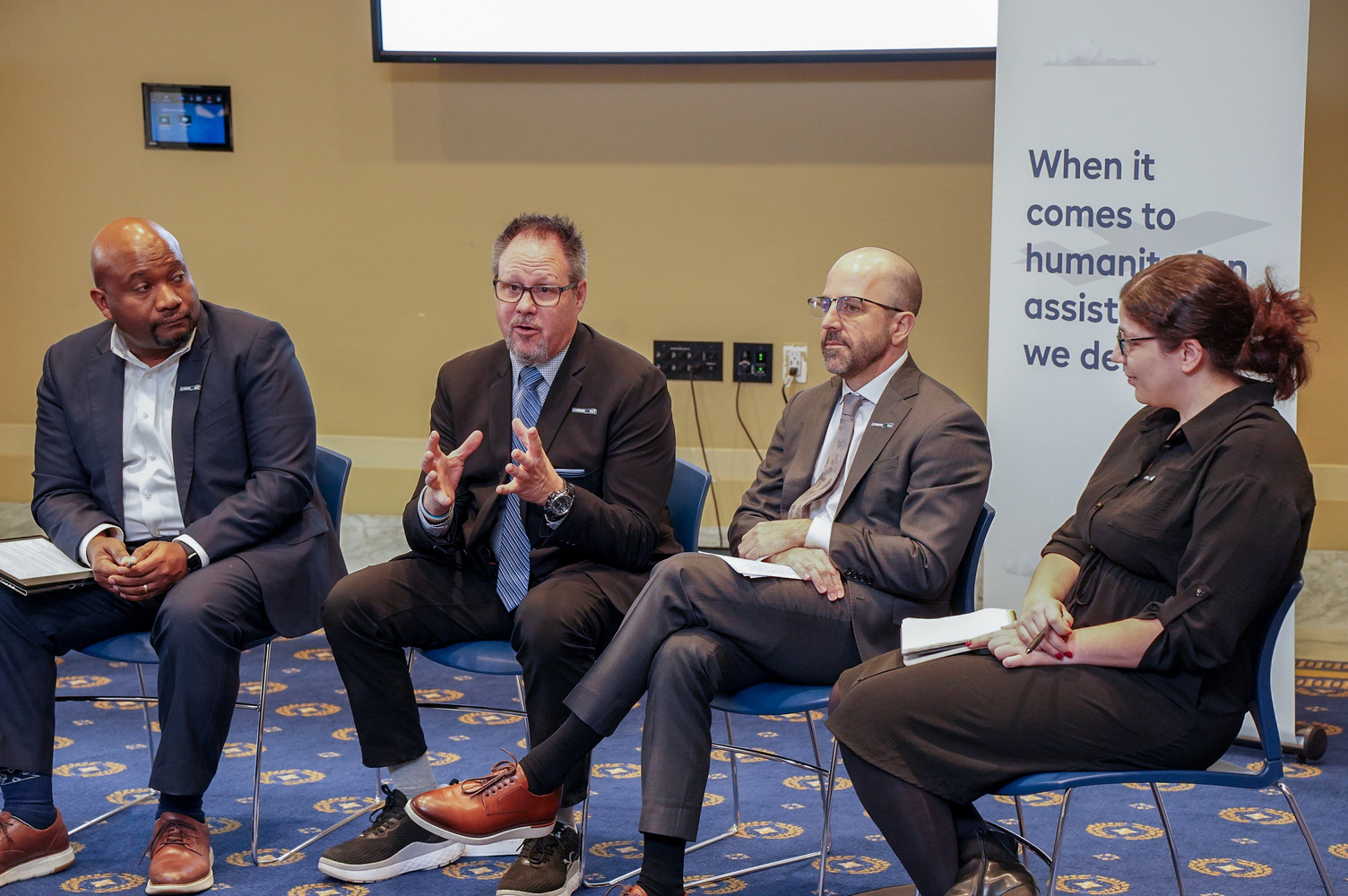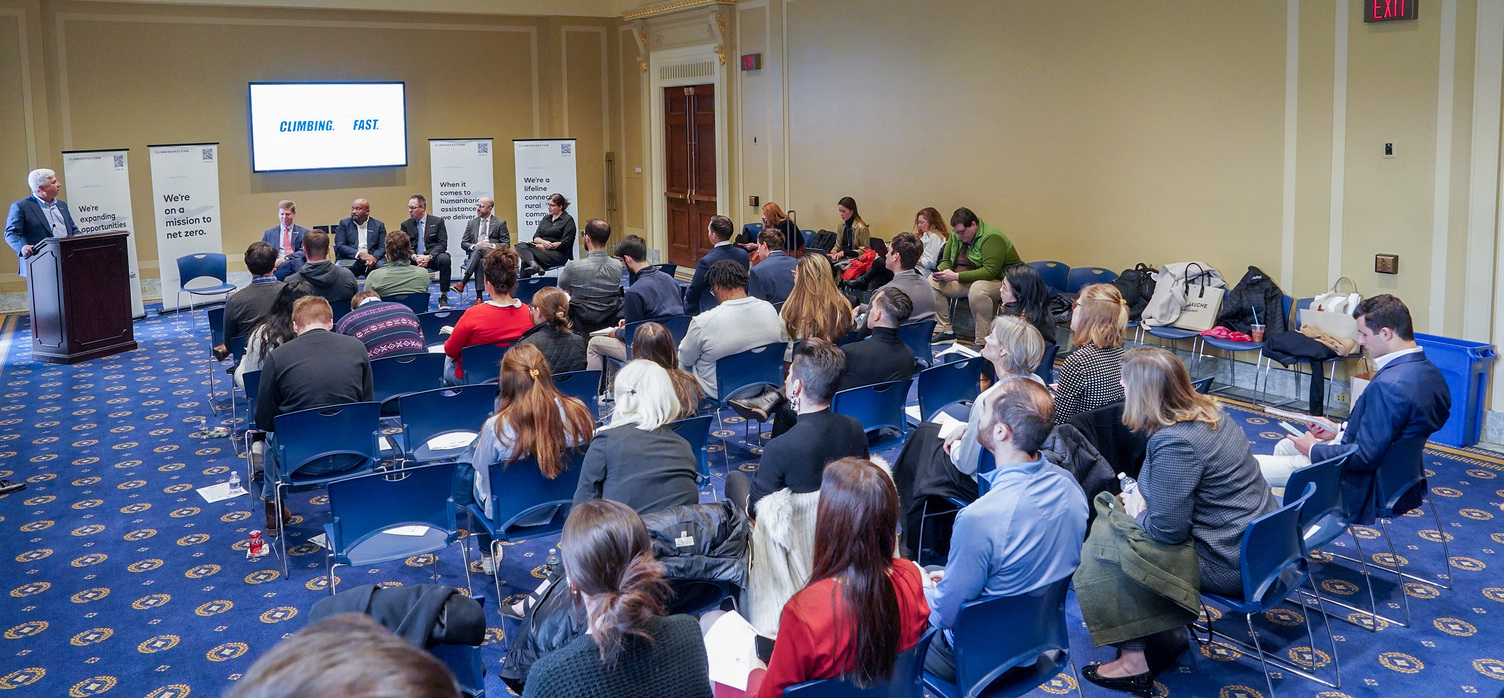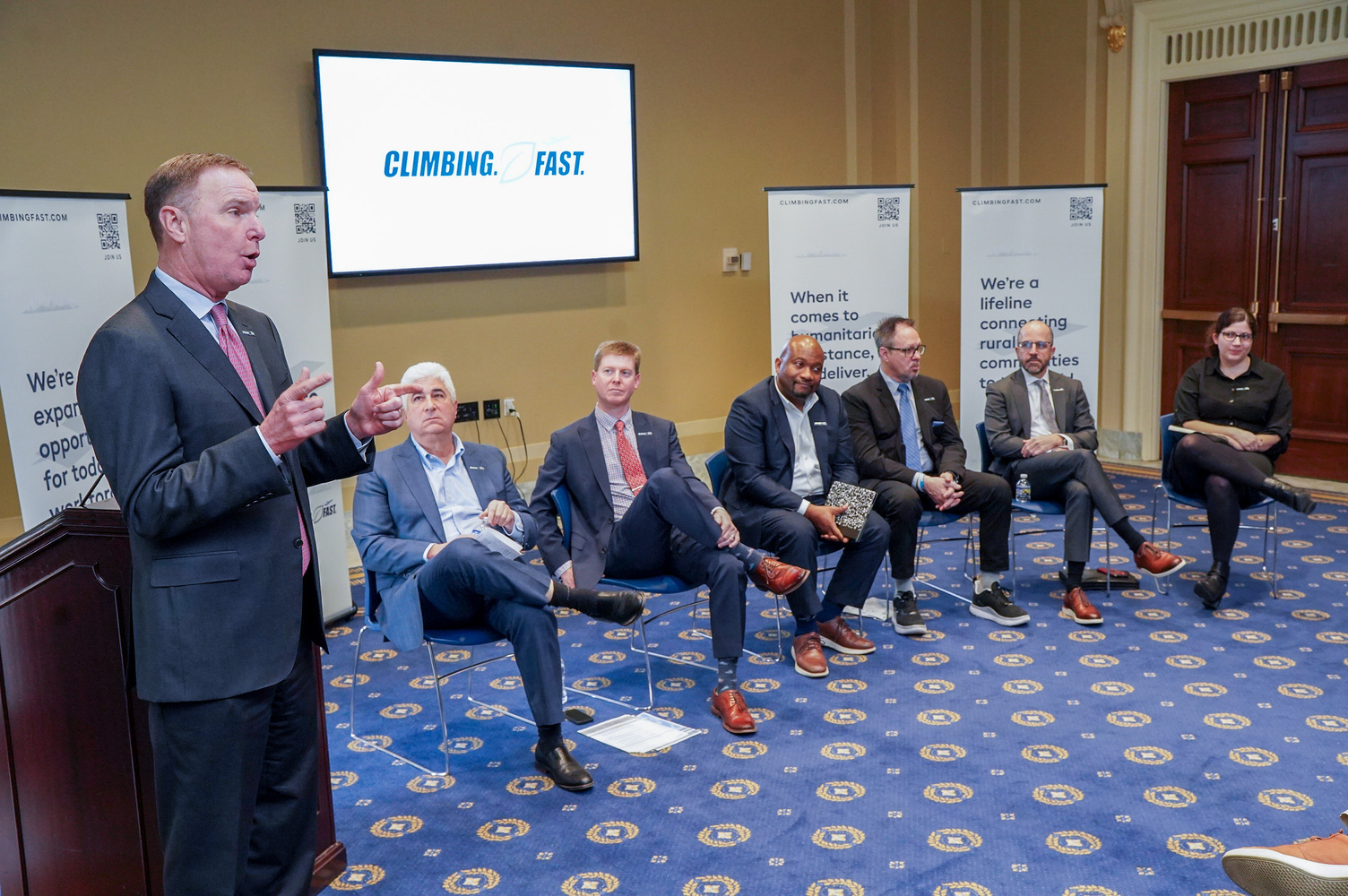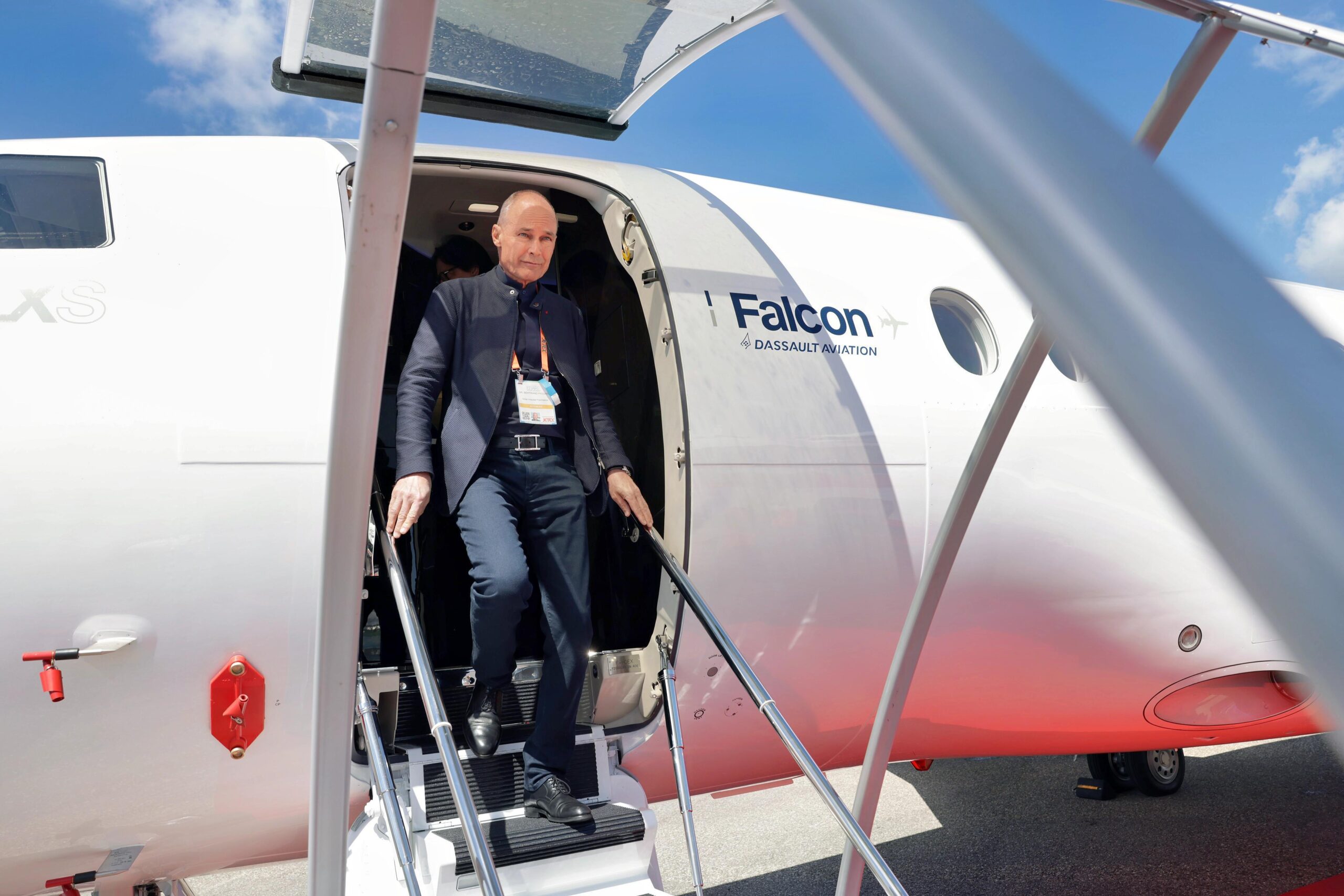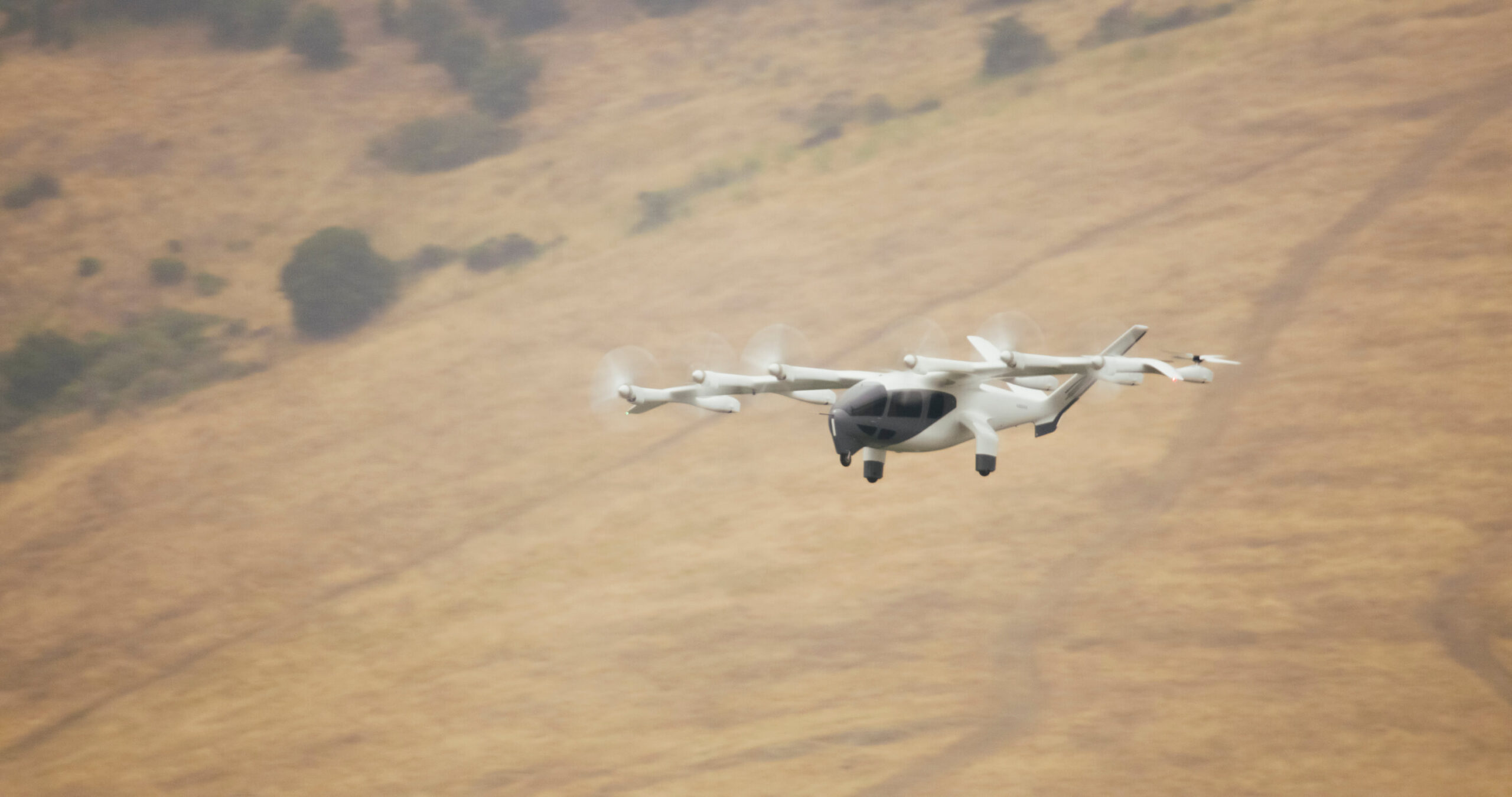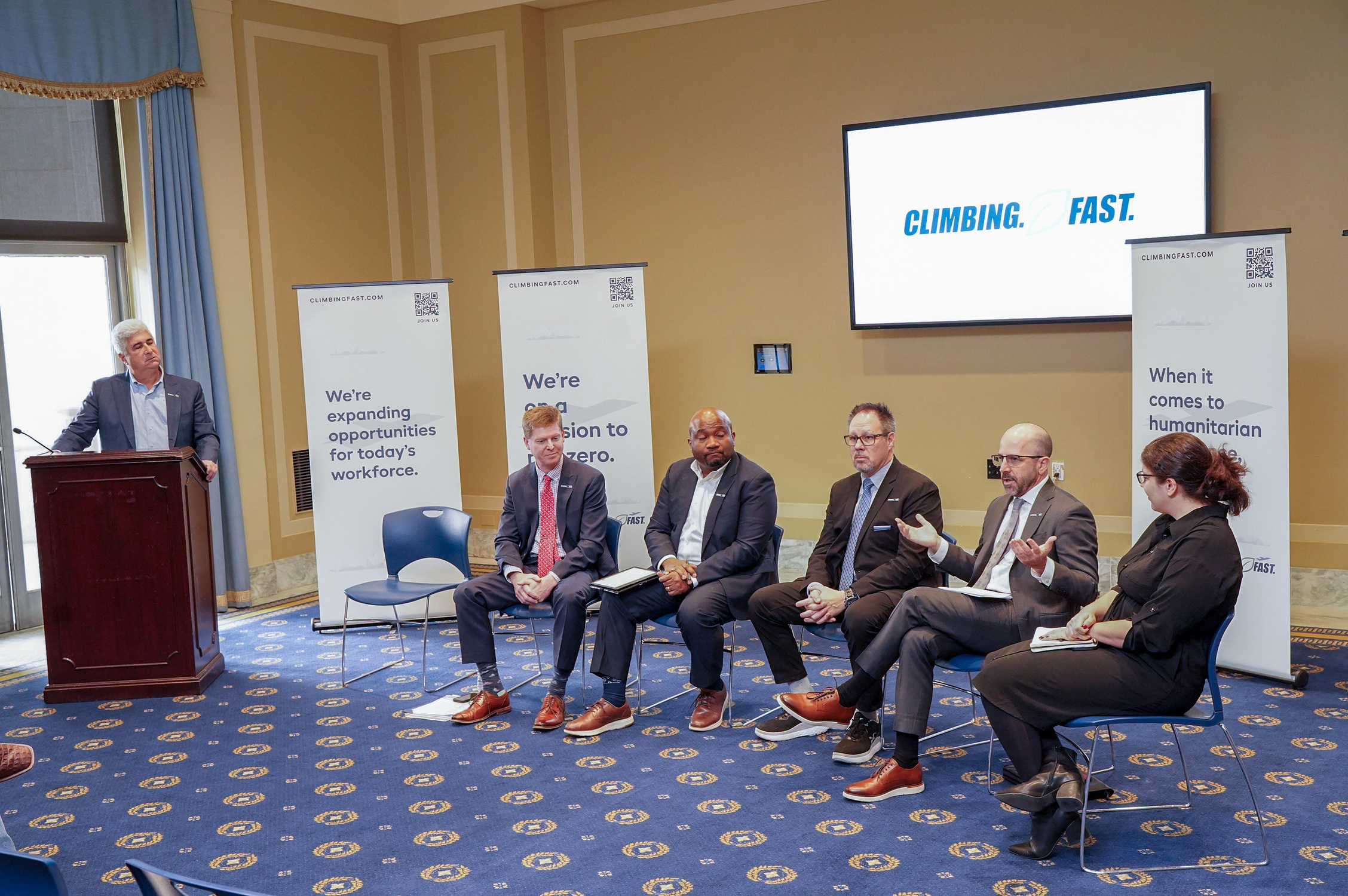
The CLIMBING. FAST. advocacy campaign was recently introduced to Congress during a meeting of the House Climate Solutions Caucus – co-chaired by Reps. Andrew Garbarino (R-2-NY) and Chrissy Houlahan (D-6-PA) – which works to combat climate change, while also protecting the economic prosperity of the U.S. CLIMBING. FAST. also shares this mission of promoting business aviation’s many societal benefits, while working on innovations in sustainability to reach net-zero emissions by 2050.
“We are an industry that is U.S. dominated, it creates a lot of jobs, it helps companies from the U.S. compete in the global marketplace,” NBAA President and CEO Ed Bolen said in introducing the campaign to the caucus. “We are committed to becoming net zero by 2050. Make no mistake about it, we are moving forward and we are doing it with a sense of urgency.”
Jeff Marootian, from the U.S. Department of Energy, was a featured speaker at the event, and said he looked forward to having this conversation with the general aviation industry. “We are at the center of the most historic moment in the clean energy movement,” he said.
This industry is a difficult sector to decarbonize, he said, adding biofuels such as sustainable aviation fuel (SAF) are a key part of the equation and it’s imperative that the fuel is easily available.
Bolen noted that 11 general aviation groups – represented all sectors of the general aviation industry – have signed on to support the campaign and work toward lowering emissions and supporting new technologies, such as electric and hydrogen propulsion, to get to net zero by 2050.
Learn more about CLIMBING. FAST.
Industry Panel Discussion
General Aviation Manufacturers Association’s Vice President of Government Affairs Paul Feldman moderated a discussion with representatives from companies in many areas of business aviation, including manufacturers and fuel producers.
“When the aviation industry puts [its] mind to something, [it] usually can figure out a way to get it done,” Feldman said.
Panelists included: Jamie Hunter from Bombardier; Todd Giles with Honeywell Aerospace Technologies; Melvyn Heard from GE Aerospace; Larry Schafer, with WE Supply Zero, LLC and Jona Koka, with Joby Aviation.
Hunter noted that Bombardier uses SAF in its corporate fleet of aircraft and uses book-and-claim when SAF is unavailable. Operators using book-and-claim upload traditional fossil-based fuel at a participating FBO or fuel supplier, but they’ll also receive credit for buying SAF at another airport where SAF is available. The process creates a system that allows operators to offset their use of fossil-based fuel.
Schafer said World Energy has two SAF facilities in the U.S., one overseas and is in the process of building a new facility in California. He noted the permitting and building process for such a facility can be a yearslong effort, and the company hopes to have the California plant up and running by 2027.
He noted that longevity with policies – such as the SAF tax credit – would go a long way in promoting sustainable actions. The tax credit currently only runs through 2027 and will sunset around the same time the California facility comes online. That credit, he said, needs to be extended another five to 10 years to have the maximum impact.
Other panelists also touted SAF as a safe and viable alternative to traditional fuel, adding their companies are working to make engines and technologies that are compatible with SAF.
“Our customers are looking for every opportunity to take an innovative approach,” noted Heard.
Honeywell, said Giles, also is doing “anything and everything” to create more sustainable products and work in a more sustainable environment. “Across the board, we are working on every vertical across the entire spectrum.”
Koka noted that Joby is working on its four-seater eVTOL, which will be able to transport 100 miles – fully on electricity.
Koka added that much of the federal money going toward electric vehicle research and development is earmarked for road vehicles, but such a narrow focus means less innovation. She urged lawmakers and government agencies to create “more inclusive and open-ended forms of funding,”
Workforce of Tomorrow
A dedication to make the industry more sustainable also means attracting new employees who may not previously have looked to aviation for career options.
“We are a big, diverse industry,” noted Hunter, adding general aviation often is a testbed for new products.
Heard said this focus gives companies the opportunity to tap into a different base of employee. People want to work for a good company that makes great products, and a company that is good for the environment – general aviation can provide both.
“We are pushing boundaries away from the traditional,” said Koka. “Sustainability can help drive the next generation workforce.”


